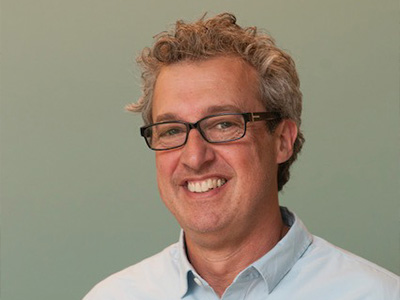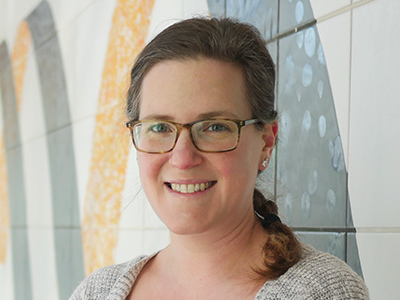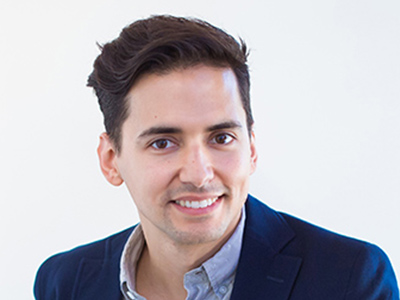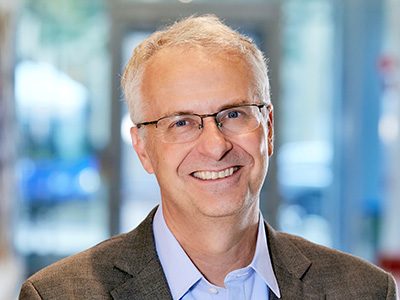
Professors Facundo Batista and Dina Katabi, along with three additional MIT alumni, are honored for their outstanding professional achievement and commitment to service.
Lillian Eden | Jane Halpern | Department of Biology | Department of Electrical Engineering and Computer Science
October 22, 2025
On Oct. 20 during its annual meeting, the National Academy of Medicine announced the election of 100 new members, including MIT faculty members Dina Katabi and Facundo Batista, along with three additional MIT alumni.
Election to the National Academy of Medicine (NAM) is considered one of the highest honors in the fields of health and medicine, recognizing individuals who have demonstrated outstanding professional achievement and commitment to service.
Facundo Batista is the associate director and scientific director of the Ragon Institute of MGH, MIT and Harvard, as well as the first Phillip T. and Susan M. Ragon Professor in the MIT Department of Biology. The National Academy of Medicine recognized Batista for “his work unraveling the biology of antibody-producing B cells to better understand how our body’s immune systems responds to infectious disease.” More recently, Facundo’s research has advanced preclinical vaccine and therapeutic development for globally important diseases including HIV, malaria, and influenza.
Batista earned a PhD from the International School of Advanced Studies and established his lab in 2002 as a member of the Francis Crick Institute (formerly the London Research Institute), simultaneously holding a professorship at Imperial College London. In 2016, he joined the Ragon Institute to pursue a new research program applying his expertise in B cells and antibody responses to vaccine development, and preclinical vaccinology for diseases including SARS-CoV-2 and HIV. Batista is an elected fellow or member of the U.K. Academy of Medical Sciences, the American Academy of Microbiology, the Academia de Ciencias de América Latina, and the European Molecular Biology Organization, and he is chief editor of The EMBO Journal.
Dina Katabi SM ’99, PhD ’03 is the Thuan (1990) and Nicole Pham Professor in the Department of Electrical Engineering and Computer Science at MIT. Her research spans digital health, wireless sensing, mobile computing, machine learning, and computer vision. Katabi’s contributions include efficient communication protocols for the internet, advanced contactless biosensors, and novel AI models that interpret physiological signals. The NAM recognized Katabi for “pioneering digital health technology that enables non-invasive, off-body remote health monitoring via AI and wireless signals, and for developing digital biomarkers for Parkinson’s progression and detection. She has translated this technology to advance objective, sensitive measures of disease trajectory and treatment response in clinical trials.”
Katabi is director of the MIT Center for Wireless Networks and Mobile Computing. She is also a member of the Computer Science and Artificial Intelligence Laboratory (CSAIL), where she leads the Networks at MIT Research Group. Katabi received a bachelor’s degree from the University of Damascus and MS and PhD degrees in computer science from MIT. She is a MacArthur Fellow; a member of the American Academy of Arts and Sciences, National Academy of Sciences, and National Academy of Engineering; and a recipient of the ACM Computing Prize.
Additional MIT alumni who were elected to the NAM for 2025 are:
- Christopher S. Chen SM ’93, PhD ’97, an alumnus of the Department of Mechanical Engineering and the Harvard-MIT Program in Health Sciences and Technology;
- Michael E. Matheny SM ’06, an alumnus of the Harvard-MIT Program in Health Sciences and Technology; and
- Rebecca R. Richards-Kortum SM ’87, PhD ’90, and alumna of the Department of Physics and the Harvard-MIT Program in Health Sciences and Technology.
Established originally as the Institute of Medicine in 1970 by the National Academy of Sciences, the National Academy of Medicine addresses critical issues in health, science, medicine, and related policy, and inspires positive actions across sectors.
“I am deeply honored to welcome these extraordinary health and medicine leaders and researchers into the National Academy of Medicine,” says NAM President Victor J. Dzau. “Their demonstrated excellence in tackling public health challenges, leading major discoveries, improving health care, advancing health policy, and addressing health equity will critically strengthen our collective ability to tackle the most pressing health challenges of our time.”









